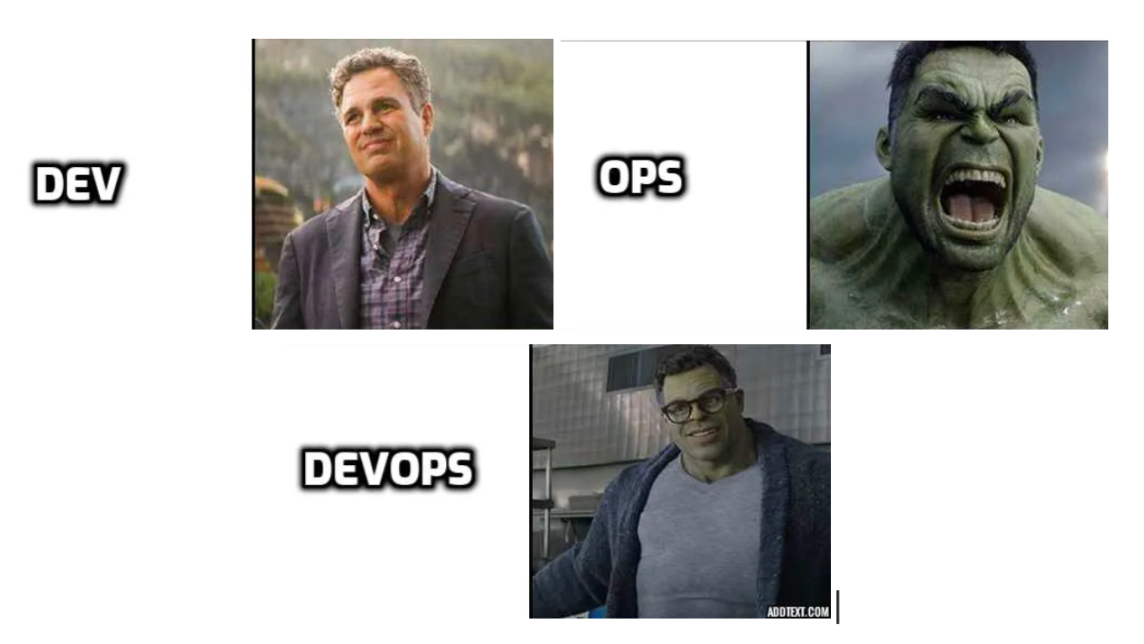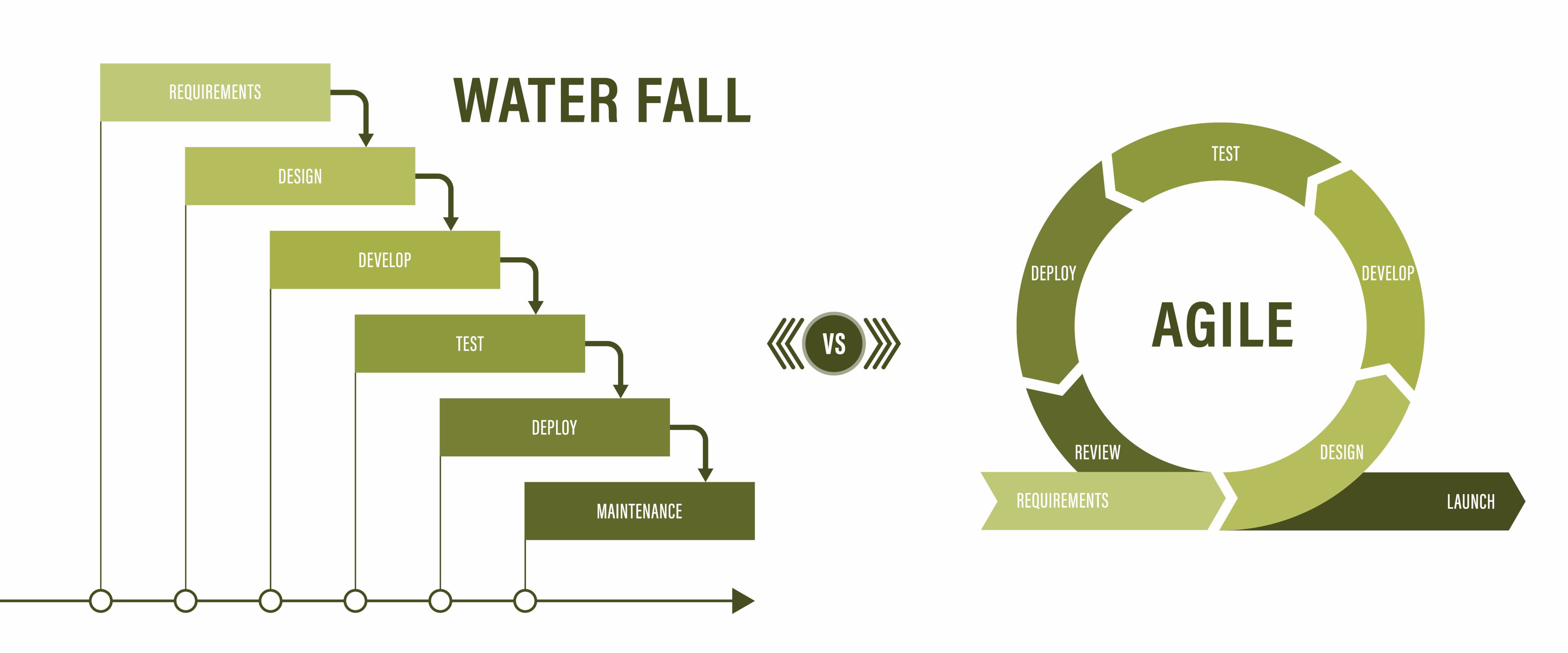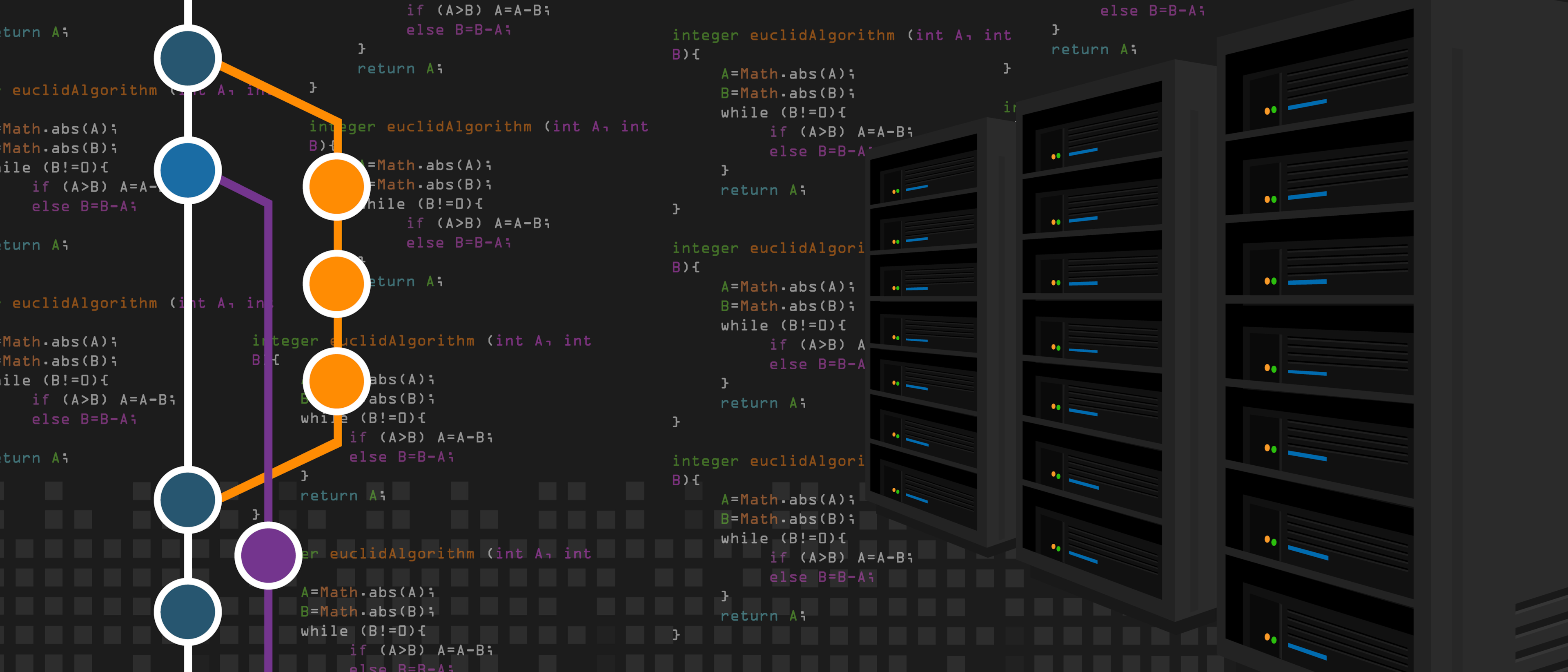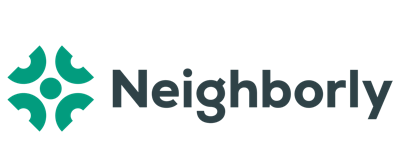In the last 5 years, IT infrastructure has become increasingly complex as companies migrate from physical servers to the virtual cloud. Because of this and the advancement of software programming, DevOps engineers have emerged as crucial players in any engineering team.
If you’re finding it challenging to make this key hire, you’re not alone.
Tech is facing a shortage of experienced cloud and DevOps engineers, with DevOps salaries frequently shooting past the 150k mark (and we thought software engineer salaries were high!)
Despite their increasing importance, there’s not a lot of information breaking down exactly how to hire a DevOps engineer.
That’s why we created this guide with DevOps engineer resume examples to help recruiters and engineering leaders move candidates through the recruiting process and successfully hire DevOps engineers.

What is the most accurate definition of DevOps?
DevOps is a set of practices, tools, and principles that integrate processes between software development and IT teams in order to quickly and continuously deliver high-quality software.
The word DevOps itself, coined in 2009, is a mashup of software “development” and IT “operations”.

DevOps can also refer to the culture and mindset associated with these technical practices.
What is the key purpose of DevOps?
The key purpose of DevOps is to deploy code faster and more reliably than traditional methods, by increasing communication and collaboration between software development and operations.
An organization will thereby be able to rapidly evolve its products to serve customers better and respond more quickly to market demands.

What are the principles of DevOps?
Though there is no “definitive list” of the principles of DevOps, HubSpot names seven principles for effective DevOps teams.
- Collaboration: Early and consistent communication processes allow a software development team to better configure for the operations phase.
- Data-Based Decision Making: With data comparing metrics such as incident time-to-resolution, teams can better compare the efficacy of the procedures and tools they use.
- Customer-Centric Decision Making: By keeping customer pain points at the forefront of the development process and collecting early feedback, teams focus their efforts on making features and improvements customers will actually like.
- Constant Improvement: Quick and incremental improvements are found to be safer and more efficient than traditional large, bulky multi-month releases.
Want a full list of technical terms for sourcing DevOps developers and other in-demand software engineers? Check out our guide that covers everything you need to know for finding, evaluating, and contacting top developer talent (including Frontend engineer resume, Backend engineer resume, FullStack engineer resume and DevOps engineer resume).
- Responsibility Throughout the Lifecycle: Rather than diffusing responsibility among many stakeholders, a smaller team takes responsibility for both building and running a feature, encouraging accountability and early planning.
- Automation: DevOps teams aim to automate to the greatest extent possible, cutting deployment time, making code more reliable, and freeing developers from manual, repetitive tasks.
- Failure as a Learning Opportunity: early and frequent testing allows teams to discover and fix errors early, before they affect the end-user.
What is Agile DevOps?
Agile is a methodology focusing on small teams driving frequent releases, in contrast to the previous sequential and bulky “Waterfall” model. Originally launched in 2001, is frequently associated with methods or organizing work such as Kanban and Scrum.
DevOps, which is distinct from but highly compatible with Agile, more broadly addresses all stages of development and delivery in order to make releases faster and more reliable.

Benefits of DevOps
To sum up, here are all the benefits DevOps will bring your team:
- Deployments are faster, delivering value and improvements continuously for improved customer experience
- Code is always in or near a deployable state, and deployments are safer and more reliable, predictable and secure
- Collaboration creates a culture of trust and cooperation rather than finger-pointing
- Quick feedback means that problems are fixed sooner, and helps developers to continually learn and improve
- Developers have end-to-end accountability over features, employing automated testing to create higher quality and less error-prone code
So what is a DevOps Engineer, exactly?
Software engineering is complicated, so there are a lot of different kinds of DevOps engineers. But we’ve got you covered — here are all the most common types, explained.
Automation Engineers use automated processes to reduce repetitive and manual work, increase productivity and accelerate delivery. Automation can be applied throughout the Software Development Life Cycle, from design and development to release to monitoring.
Build/Release Engineers work with developers to test and deploy software. “Build” refers to software code ready for testing, and “Release” is the tested, usable version launched to the customer. These engineers are also involved with version control, automation, and configuration management.
Cloud Architects oversee the overall cloud computing strategy, converting technical requirements into the design, development, and management of cloud architecture and cloud infrastructure
Infrastructure Engineers work on overall infrastructure, including design, security, virtualization, containerization, automation, deployment and reliability.
Security (DevSecOps) Engineers incorporate security controls in order to protect information systems from misuse, fraud, information theft and damage.
Site Reliability Engineers ensure scalability, reliability and availability of software systems.
System Administrators (SysAdmins) work on the maintenance, configuration and operation of computer systems and services, focusing on performance, security and IT support.
Quality Assurance/Test Engineers ensure that software releases are reliable and tested to be error-free before being released to users.

What are DevOps engineer skills?
You might also wonder what the most in-demand DevOps engineer skills are and what you can expect to see on a DevOps engineer resume or in a DevOps Engineer job description. Wonder no longer!
| Scripting language | e.g Bash, Go (or Golang), Perl, Python |
| Cloud Platform | e.g. AWS, Azure, GCP |
| Containerization | e.g. Docker, Kubernetes |
| Version Control | e.g. Git |
| Continuous Integration | e.g. Jenkins |
| Continuous Testing | e.g. Selenium |
| Continuous Monitoring | e.g. Nagios |
| Automation and Configuration Management | e.g. Ansible, Chef, Puppet, Salt |
| Cloud Infrastructure-as-Code | e.g. Terraform, CloudFormation |
| Soft Skills | Communication, Teamwork, Curiosity, Process-Orientation, Willingness to Learn, Attention to Detail, Problem-Solving, Proactiveness |
DevOps engineer resume sample
The average recruiter receives 250 resumes for an open position. That’s a lot of reading!
A DevOps engineer resume may appear dense and jargon-filled at first glance. And unfortunately for recruiters, DevOps engineers may not mention their role explicitly on their profiles or DevOps resume.
However, with the right strategies, it’s more than possible to effectively evaluate a DevOps Engineer resume for skills and experiences.
Let’s go through a DevOps engineer resume example to demonstrate how to read a DevOps engineer resume.

DevOps Engineer Resume Sample (#1)
| DevOps Resume: Adam Roy Hi, I’m Adam. I’m a Software Engineer at Zonova, working on our cloud strategy, cloud infrastructure, and automation frameworks. Professional Experience: DevOps Engineer III at Zonova (2017-) Deploying, managing, maintaining, scaling, and monitoring multi-tenant SaaS applications on Azure Automate platform infrastructure deployments through Ansible Worked closely with Analytics Team to help manage Hadoop Clusters Manage operational databases, primarily focusing on Couchbase and Elastic, but also transitioning data from Mongo and Redis Troubleshoot live production issues, perform root cause analysis and script remediation Software Engineer at AveriTech (2014-2017) Design REST APIs for Virtual Machine setups Automate server setups for security, performance, and load testing Configure and Maintain DNS and Proxy Servers on Linux Executed test cases on bug fixes for storage addition, multitenant deployment, updates, FedRamp images, and new features. Education: UC Irvine, B.S. in Computer Science (2009-2014) Skills: Linux, C, C++, MySQL, Jenkins, DNS, PHP, Developer Tools, Verilog, Unix, Python, Ansible, Kubernetes, Java, RESTful API, Virtual Machines, Bash Scripting, Azure, AWS, Hadoop, Apache Airflow, Redis, Mongo, Couchbase, ElasticSearch, Continuous Integration and Continuous Delivery |
How to read this DevOps engineer resume?
You can successfully identify a DevOps engineer by looking for keywords such as:
Automation, Availability, Build & Release, Cloud Architecture, Configuration, Containers, Continuous Integration, Continuous Delivery, Continuous Deployment, CI/CD pipelines, DevSecOps, DNS, Logging, Monitoring, Infrastructure, Scripting, Security, Site Reliability, Quality Assurance (QA), Testing, Tooling, Virtual Machine
DevOps Engineer Resume Example (#2)
| DevOps Resume: Gabby Huang Experienced DevOps Engineer with a demonstrated history of working in the computer software industry. Diverse background in both development and systems architecture. Skilled in automation, build/release, CI/CD pipelines, cloud architecture, containerization, problem-solving and more. Professional Experience: Senior DevOps Engineer at Cloudery.io (2019-) Developed custom cloud management platform providing extensive automation of both internal and client cloud management tasks (AWS) Continuous delivery, testing and fixing of problems related to IaaS services Key metric reporting and analysis of cloud infrastructure health Site Reliability Engineer at Cisco Meraki (2016-2019) Built tooling for developers to safely test and deploy code Debugged software issues across the stack Assisted the development and deployment of JVM, NodeJS and Python applications while maintaining availability Automation of configuration, logging, monitoring and DNS to help reduce provisioning times Education: Virginia Tech, B.S. in Computer and Information Sciences (2011-2016) Skills: Python, RESTful Web Services, Git, Ansible, Apache, SQL, Virtualization, Unix, Linux, Terraform, CI/CD pipelines, Containerization, Docker, Kubernetes, Ansible, NodeJS, AWS, Azure, Google Cloud Platform Education: Virginia Tech, B.S. in Computer and Information Sciences (2011-2016) Skills: Python, RESTful Web Services, Git, Ansible, Apache, SQL, Virtualization, Unix, Linux, Terraform, CI/CD pipelines, Containerization, Docker, Kubernetes, Ansible, NodeJS, AWS, Azure, Google Cloud Platform |
How to read this DevOps engineer resume?
A DevOps engineer can be a very different role in different organizations and may even overlap with other roles such as Site Reliability Engineer or Backend Engineer.
Company size also matters — at a small startup, a successful DevOps engineer is likely to be a generalist who will wear many different hats. However, at a larger company, a DevOps engineer might only specialize in one or two DevOps roles, like Build & Release.
To determine a mutual fit between a DevOps candidate and a role, it is helpful to compare a list of DevOps roles a candidate has on their DevOps engineer resume and which roles are listed in the job description.

Where to find a DevOps engineer?
We’ve analyzed the most popular routes for finding your next great DevOps engineer hire.
In-House Recruiter
Pros: An in-house recruiter is typically a generalist, able to handle the process from writing a DevOps engineer job description to sourcing and recruiting a skilled DevOps Engineer. They are also familiar with the culture of your company and have a deeper understanding of how to be successful in your specific roles.
If you have a consistent demand for talent, this option is more cost-effective than using an agency.
Cons: Hiring an in-house recruiter comes with higher upfront cost and effort, particularly during a technical recruiter shortage.
Freelance or Contract Recruiter
Pros: If you don’t have consistent hiring needs, using a short-term recruiter can offer more flexibility. Many freelance recruiters have strong networks and may charge less than agencies.
Cons: Freelance and contract recruiters from sites like Toptal and Upwork aren’t screened like recruiters at an agency, and high job turnover can be an issue. In addition, contract recruiters charge high rates, often earning $75-150 per hour.
Recruiting Agencies
Pros: Recruiting agencies aim to employ experienced recruiters with technical knowledge. And since compensation is based on results, agencies are very motivated to find candidates. This option is also typically more flexible than an in-house recruiter.
Cons: High fees can be 15-20% of the candidate’s first-year salary – or even more! And unscrupulous agencies may also flood you with unqualified DevOps resume after DevOps resume in the hopes that something sticks.
AI Sourcing Technology
Pros: Artificial Intelligence and Machine Learning solutions offer automated candidate-job matching and outreach, freeing up your team to engage and close candidates.
In addition, this is also the most flexible option on the list, allowing you to scale your recruiting efforts up and down in an uncertain hiring environment and stretch your recruiting budget dollars further.
AI sourcing tools are gaining popularity in the recruiting world. Check out the list of best AI sourcing tools in the market.
Cons: Learning a new tool can be a significant time investment.
If you lack that bandwidth, services like Celential.ai can help. All you have to do is sign up for a free trial to start receiving strong DevOps Engineers within 3 days with no effort or learning curve on your part.

What are the best sites to hire good DevOps engineers?
Sourcing in-demand technical talent is as hard as it gets for recruiters. Unresponsive candidates, outdated LinkedIn profiles, dry talent pools — if these challenges sound familiar to you, it might be worth checking out some creative sources of engineering talent.
- Upwork is a freelance platform that allows engineers, new and experienced alike, to compete for jobs. Consequently, you might have to do some searching and screening to find DevOps engineers that match your technical bar.
- Toptal: Only more experienced freelancers are featured on Toptal, which claims to host the “top 3%” of talent. Toptal will match you with DevOps engineers with less effort required than Upwork, but you can expect to pay a correspondingly higher hourly rate.
- AngelList: If you’re having trouble finding DevOps engineers eager to work at a startup, AngelList will solve your problem — it’s the platform for people seeking startup jobs. That said, it comes with the same challenges as other job boards: once you upload a DevOps Engineer job description, you will have to do some filtering.
- Stack Overflow is a Q&A board for technical information and theoretical discussions about coding. Operating since 2008 with 14 million registered users who have asked 21 million questions, it serves as an encyclopedic knowledge repository for programmers. Common issues related to various technical topics and complex problems have been addressed on the site.
- GitHub is a platform where members of the development community collaborate on cutting-edge coding projects together. Git creates forking branches through project versions, preserving older versions of code in case they’re useful later. Over 90% of developers use Git, and GitHub is the most popular place to store that code and to run Git commands on it.

How to hire a DevOps Engineers: 5 Interview tips
It’s not always easy to interview and hire for specialized, technical roles like DevOps engineers. Here are some insights and tips our talent acquisition team has found effective in hiring DevOps engineers.

#1: Be Flexible
No matter the uncertainties around tech hiring freezes, pandemic recovery, and a possible recession, top DevOps talent has always been a challenge to recruit.
With the DevOps market, in particular, remaining sizzling hot, companies who drag candidates through week-long processes waste time and resources — and lose out on top candidates to competitors who move quickly.
By being flexible and accommodating to DevOps candidates, however, you can easily gain the advantage.
Create a great candidate experience (and corresponding return-on-investment) by answering candidates’ questions, getting back to them quickly, making take-homes short and painless, and rearranging your own team members’ schedule to move quickly.
#2: Prioritize Communication Skills
Communication skills are often overlooked while hiring engineers, but the best engineers know how to collaborate, listen closely, and ask questions to better understand business needs and identify the root causes of a problem.
This is even more true for DevOps engineers, who collaborate across the organization and frequently have to communicate updates to executives and other non-engineering employees.
#3: Assess technical skills
DevOps is a highly technical field, requiring broad knowledge of coding languages, cloud infrastructure, applications, automation, and operations.
To successfully resolve issues, a successful DevOps engineer needs a strong grasp of the fundamentals — from networks to servers to databases to backend code — and how to build, operate, debug and maintain this infrastructure.
Ask technical questions to probe both a candidate’s breadth of experience as well as the specific tools and technologies they have employed in the past.
#4: Investigate Red Flags
Job hopping isn’t necessarily a career-killer in 2022 — and a short stay might have a perfectly justifiable reason. However, it’s helpful to ask a candidate about the reasons they left and understand their mindset.
Most engineering hiring managers also consider long-term freelance, consulting, and contract work to be red flags, as engineers may not have had the opportunity for sustained mentorship or experience in seeing significant projects end-to-end.
#5: Develop a Compensation Plan
With recruiters beating down the doors of DevOps engineers, researching competitive salaries can help you avoid losing a candidate you’ve spent considerable time cultivating.
One tip we’ve found effective is presenting candidate offers in a polished, personalized slide deck with multiple options for equity/compensation splits and detailed information on what equity looks like in various exit scenarios.
If you’re looking for more technical recruiting tips, we’ve got you covered.
3 Interview questions to hire a DevOps engineer
Here are three questions you can use to identify a top-quality DevOps engineer.
#1. Walk me through a project you’re most proud of from ideation to implementation. What were the problems you were solving? What was your approach? Which tools did you use?
This question can help you dig into the way a candidate thinks and give concrete insight into how they have operated in the past. Top DevOps candidates will also be able to articulate how their own individual projects and responsibilities impact the company as a whole.
#2. Tell me about a time you had to communicate a technical process or strategy to someone without a technical background.
It’s not just about the skills in the job description — DevOps engineers need the verbal, interpersonal and communication skills (as well as the patience) to break down complex technical information in a way that’s understandable to colleagues from a variety of backgrounds.
Great DevOps candidates will be able to use powerful and well-chosen metaphors, verbal images and examples to convey technical information in an accurate and accessible way.
#3. Tell me about a time you faced a setback in a project. What did you learn? Was there anything you could have done better, or did you pick up a new language, technology or skill?
The willingness to learn from mistakes and continuously improve is one of the pillars of DevOps culture.

What is a DevOps engineer salary?
Here are some market salary data to help recruiters plan headcount and compensation targets while hiring DevOps engineers.
It’s important to note that pay may vary significantly depending on location and company. For example, a Software Engineer in the San Francisco Bay Area (CA) is compensated $132,027 annually on average but one in Helena (MT) makes $114,430.
Planning to hire a full stack developer for your next project? Read our comprehensive guide to recruiting full stack developers.
| Title | Years of Experience | Base Compensation | Additional Compensation |
|---|---|---|---|
| Entry-level | 0-1 years | $60,900 | $20,116 |
| DevOps Engineer | 1-3 years | $95,474 | $18,205 |
| Senior DevOps Engineer | 4-6 years | $112,657 | $17,402 |
| Principal DevOps Engineer | 7+ years | $144,502 | $22,921 |
Learn how much it costs to hire a software developer.
Wrapping up: How much does it cost to hire a DevOps engineer?

With stiff compensation, agency fees, and hours invested in recruiting, the total cost for hiring a DevOps Engineer can be $30,000 or more in 2022.
One way to avoid both the high hourly rates of a contract recruiter and the hefty placement fees of an agency is through Celential.ai’s Virtual Recruiter service. You receive warm talent ready for interviews in 3 days on average with zero effort or learning curve on your part.
Even better, our ‘Virtual Recruiter’ helps clients save 50% recruiting costs on average compared to other hiring methods with:
- Cutting-edge AI and ML to automate the repetitive sourcing tasks you’d hire additional recruiters to tackle.
- Access to top passive talent that isn’t found on LinkedIn and normally would take months to get a positive response.
- And a new, usage-based model that can be turned on when you have a critical opening and paused once you make a hire.
Schedule a call to learn more!
Table of Contents
































